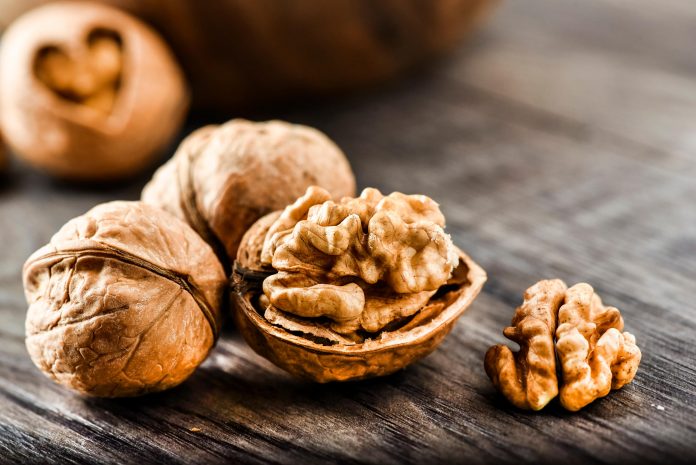Reading Time: 4 minutes
Nutritionally how do nuts rank? — (healthline.com)
Gold medalist – Almonds, Pistachios, walnuts
Silver medalist – cashews, Pecans, Macadamia nuts
Bronze medalist- Brazil nuts, hazelnuts, peanuts
All nuts actually are medalists.
Though we constantly hear of almonds being the king of all nuts for all health reasons with being cost effective, pistachios are equally nutritious but are pricy. The hidden secret is that walnuts are nutritionally superior to almost all nuts.
Know why?
Walnuts – Juglans Regia commonly the English walnut or the Persian walnut is the most studied for nutrition facts. The trees originated in the Mediterranean region and central Asia, which have been around for thousands of years. It is important to know that many species of walnuts do exist but few are edible.
Fact file —
COMPOSITION OF WALNUTS
Walnuts are made up of 65% fats, we often hear that nuts are fattening, it is true, most of the calories come from fat, making them energy dense and a high-calorie food. Walnuts are also richer than most other nuts in polyunsaturated fats. The most abundant one is an omega-6 fatty acid called alpha-linoleic acid. It’s the good fat for your body and makes up 8-14% of total fat content, making it beneficial for heart health, and reduction in inflammation.
NOTE: Studies show that if eaten as a meal, replacing a meal and not combined with a meal, the fats will not cause any weight gain,
15% protein, a very healthy way to add protein to your daily diet.
Rich in minerals and vitamins such as —
Copper, folic acid(vitamin B9), Phosphorus, Vitamin B6, Manganese, vitamin E (high levels of gamma-tocopherol)
Rich in plant compounds (found especially in the brown skin) such as—
Ellagic acid, Catechin (a flavonoid), melatonin (a neurohormone that helps regulate your body clock) Phytic acid (to absorb iron and zinc)
Low in carbs (most of which is fiber) the skin of the walnut is fiber for the gut, slows down absorption of other carbs consumed.
30gms serving, (approximately 14 halves)
Provides the following nutrients —
- Calories:185
- Water:4%
- Protein:3 grams
- Carbs:9 grams
- Sugar:7 grams
- Fiber:9 grams
- Fat:5 grams
Walnuts provide healthy fats, fiber, vitamins, and minerals to support your health in innumerable ways. Thus calling it a nutritious food is really an understatement.
Lets look at the health benefits of walnuts when you include it in your daily diet plan —
Heart health – heart health is a broad term used for all conditions that contribute to the health of your heart and blood vessels.
- Maintaining a low LDL (bad) cholesterol level
- Reducing inflammation
- Improving blood vessel function by cutting the risk of plaque buildup in your arteries.
Eating walnuts daily may combat risk factors for heart disease.
Cancer prevention — what is cancer? Broadly it is a group of diseases characterized by abnormal cell growth. Walnuts being a rich source of beneficial plant compounds (mentioned above) making them part of your daily diet makes them a cancer preventive.
Brain health — Several studies on older adults have linked regular consumption of walnuts with significant memory improvement. Improved comprehension, memory, and even stagnating Alzheimer’s. Basically, you can attribute all age-related decline in brain function, eating walnuts does show improvement or remission of negative brain function. It may be just a coincidence that the shell of a walnut looks like a tiny brain, that’s a personal observation.
The positive effects of eating walnuts are likely caused by the beneficial fat composition of walnuts, as well as their rich antioxidant content.
What are the other reasons that make walnuts a GOLD rated nut?
– Walnuts have a greater antioxidant activity than any other nut. This comes from the vitamin E, melatonin and plant compounds (polyphenols), which are found in particularly large amounts in the papery skin of the walnuts. So remember to eat the skin.
– Walnuts a significantly higher in omega-3 fatty acids (alpha-linolenic-ALA) than any other nut. According to the Institute of Medicine, an adequate intake of ALA is 1.6gms/day for men and 1.1gms/day for women; a single serving of walnuts meets this guideline. All needed to increase ALA levels to lower risk of cardiovascular conditions, type-2 diabetes, LDL and blood pressure.
– Walnuts may decrease inflammation, which is usually caused by oxidative stress. Inflammation is the key culprit in many chronic conditions. The ALA, Omega-3 fats, magnesium and amino acid arginine are found in walnuts, all help combat inflammation.
– Gut health is most important and a common problem in older adults. Eating walnuts is one way to support the health of your microbiota (health-promoting bacteria) in your gut.
– Walnuts may help regulate your appetite, even though walnuts are calorie-dense, a study suggests that your body absorbs 21% less energy from them, thus not absorbing all the calories they contain. All this supports weight management.
– Most importantly, for us older adults, eating a couple of walnuts daily supports healthy ageing. The most import ingredient for ageing is good physical functioning essential for maintaining your mobility and independence.
NOTE: always be aware of allergies.
LAST WORDS — you can find walnuts in almost every grocery store. Eat them raw, roasted or as cold-pressed oil.
USE —
- Chopped and sprinkled on leafy green or fruit salads or the oil as salad dressing.
- Finely ground in dips and sauces for roasts and pastas.
- In whole grain breads, cakes.
- In oatmeal, trail mix, yogurt topping.
There are any number of recipes on the net.
How many walnuts should you eat a day?
¼ cup or 5-7 full walnuts.
There are plenty of reasons to try a walnut-enriched diet.








